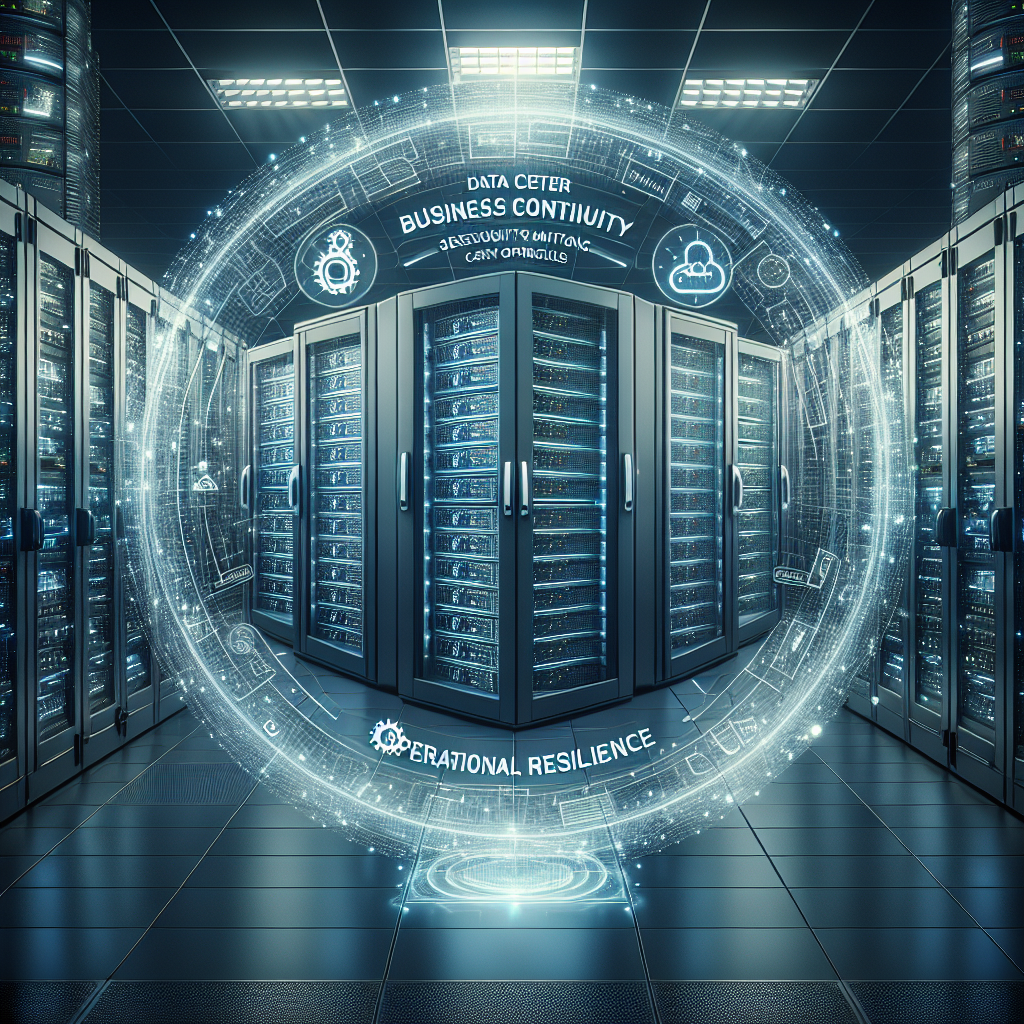Your cart is currently empty!
Mitigating Risks and Ensuring Operational Resilience in Data Center Business Continuity

In today’s digital age, data centers play a crucial role in ensuring the smooth operation of businesses. With the increasing reliance on technology, data centers are responsible for storing, processing, and managing vast amounts of data. As such, it is essential for data center operators to prioritize business continuity and operational resilience to mitigate risks and ensure uninterrupted service delivery.
One of the key challenges faced by data center operators is the potential for disruptions that can impact the availability and reliability of their services. These disruptions can be caused by a variety of factors, including natural disasters, power outages, cyber-attacks, hardware failures, and human errors. To address these risks, data center operators must implement robust business continuity plans that outline procedures and protocols to ensure the continued operation of their facilities in the event of an incident.
Mitigating risks and ensuring operational resilience in data center business continuity requires a multi-faceted approach that encompasses various aspects of the operation. This includes investing in redundant infrastructure, implementing robust security measures, conducting regular maintenance and testing, and establishing clear communication channels with stakeholders.
One of the key strategies for mitigating risks in data center business continuity is the implementation of redundant infrastructure. This includes redundant power supplies, cooling systems, and network connections to ensure that data center operations can continue even in the event of a failure. By investing in redundant infrastructure, data center operators can minimize the impact of disruptions and ensure uninterrupted service delivery to their customers.
In addition to redundant infrastructure, data center operators must also prioritize security measures to protect their facilities from cyber-attacks and unauthorized access. This includes implementing firewalls, intrusion detection systems, and access controls to prevent security breaches and data loss. Regular security audits and penetration testing can help identify vulnerabilities and weaknesses in the system, allowing operators to take proactive measures to address them before they are exploited.
Regular maintenance and testing are also essential components of ensuring operational resilience in data center business continuity. By conducting routine maintenance checks and testing backup systems, data center operators can identify and address potential issues before they escalate into major disruptions. This proactive approach can help minimize downtime and ensure the continued operation of the data center in the face of unforeseen events.
Communication is another critical aspect of mitigating risks and ensuring operational resilience in data center business continuity. Data center operators must establish clear communication channels with internal and external stakeholders, including customers, vendors, and regulatory authorities, to keep them informed of any disruptions and the steps being taken to address them. By maintaining open and transparent communication, data center operators can build trust and confidence with their stakeholders and minimize the impact of disruptions on their business operations.
In conclusion, mitigating risks and ensuring operational resilience in data center business continuity is essential for the continued success and sustainability of data center operations. By investing in redundant infrastructure, implementing robust security measures, conducting regular maintenance and testing, and establishing clear communication channels, data center operators can minimize the impact of disruptions and ensure uninterrupted service delivery to their customers. By taking a proactive approach to business continuity planning, data center operators can effectively manage risks and protect their operations from potential threats, ultimately ensuring the reliability and availability of their services.

Leave a Reply